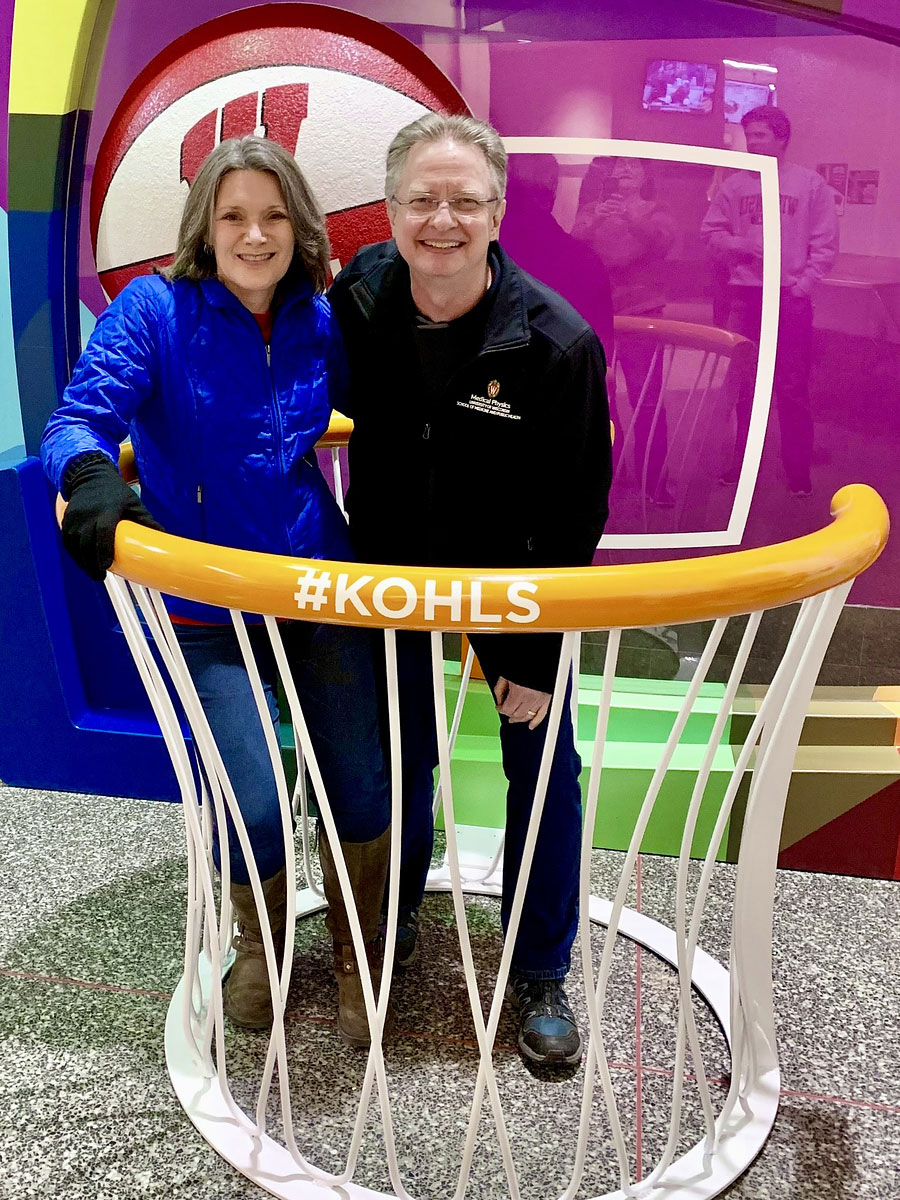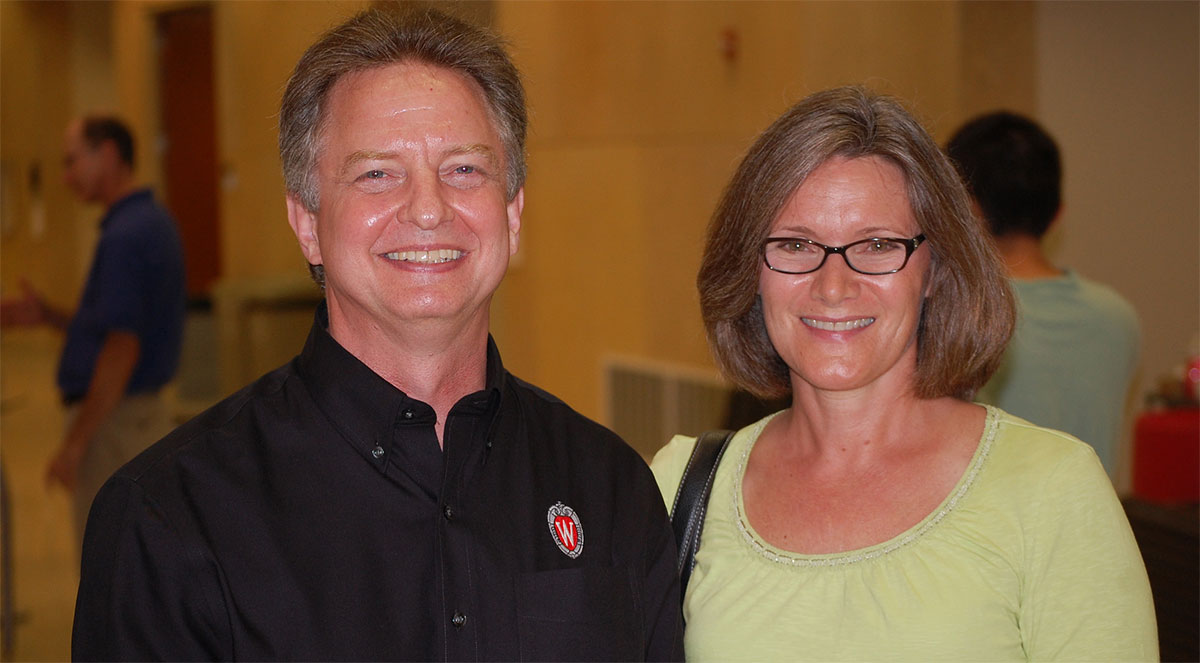Editor’s note: The Summer Science Camp is back in July for its 19th year. Morgridge will host 75 students and 13 teachers from 14 schools, spanning Wisconsin geography from Beloit to Chequamegon.
Well before Sondra Jackson went on to work as a software engineer in the space shuttle program, and before her late husband Ed Jackson became chair of UW–Madison’s Department of Medical Physics, they met as first graders in a rural Alabama school.
Together, they went through school, harboring interests in science and math. The two started dating in high school and together they enrolled in Auburn University. Sondra, whose high school didn’t offer calculus, recalls their first day of introductory calculus at Auburn.
“We sat down that first day and the professor put something on the board and said, ‘If you don’t know what this is, you’re probably in the wrong class,’” she says. “We didn’t have a clue, but we made it through anyway. But it was not easy.”
The lack of resources and meaningful connections between universities and rural public-school districts stuck with the Jacksons – who later became financial supporters of Morgridge’s Summer Science Camp.
The couple wanted to help inspire scientific discovery in students from Wisconsin’s rural schools and introduce them to university life — which often seems intimidating to students from rural backgrounds.
“Even though this university is not at your doorstep, that doesn’t mean that it’s not accessible or not right for you,” Sondra says. “As you’re looking around for what to do with the rest of your life, look further and don’t be intimidated. That’s the message the Summer Science Camp can deliver.”

Last year, the 18th annual camp welcomed 75 high school students from 13 rural high schools across Wisconsin to participate in hands-on science activities alongside researchers. For the past several years, the Jacksons’ support has been recognized by naming a week of camp after Ed.
In addition to giving students a chance to learn about the depth and breadth of career opportunities in science and engineering, the camp provides an opportunity to live on campus and sample university life and meet with UW–Madison admission and financial aid advisors.
“We realized that it would have been much easier during our college careers if we would have had more connection earlier to higher education and what it offers. That’s why supporting the Summer Science Camp appealed to us,” Sondra says.
After they graduated from Auburn, Sondra went on to work for 10 years as a software engineer for IBM, which contracted with NASA on the space shuttle program.
Ed stayed at Auburn to receive a master’s in physics prior to marrying Sondra in 1986. He then earned a doctorate in biophysics from the University of Texas Health Science Center at Houston’s Graduate School of Biomedical Sciences.
An expert in magnetic resonance imaging and its use in treating cancer, Ed spent 20 years working at Houston’s MD Anderson Cancer Center. In 2013, he and Sondra came to UW–Madison, where Ed served as chair of the Department of Medical Physics.
Along the way, the couple had two children, Michelle and Jonathan. Michelle, with a master’s in psychology, is a business analyst for a health care IT firm and Jonathan is a postdoctoral fellow in biophysics at a Max Planck Institute in Germany.
In 2019, Ed died of cancer at age 58 and the family decided to continue their support of the Summer Science Camp.
“As we were getting everything in order, we talked about it and knew that’s what Ed would’ve wanted to do,” Sondra says. “We always had it in mind to open doors for rural kids and make them think, ‘Hey, I can do this.’”
